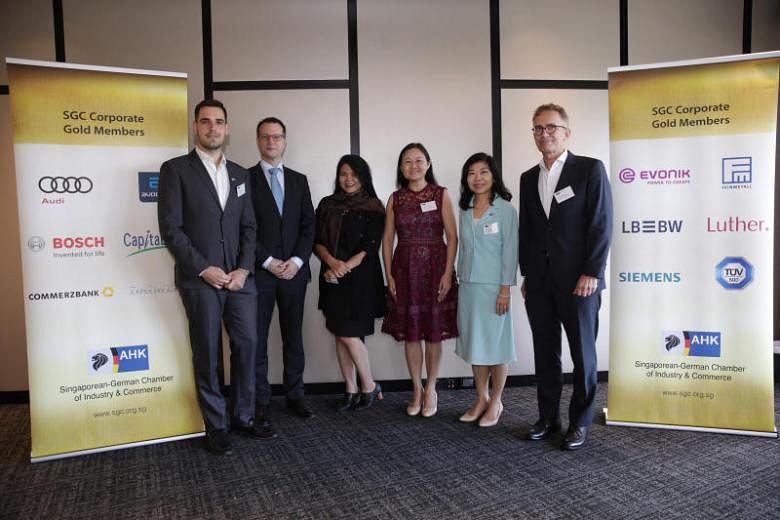SINGAPORE - Local companies' collaborations with firms in the European Union (EU) can be smoother in the long term, with the landmark trade pact between the EU and Singapore which came into force last November providing key foundations such as simplifying and standardising customs procedures.
Singapore biotech firm Acumen Research Laboratories, which is exploring the possibility of licensing technologies from its Stuttgart-based counterpart and localising manufacturing activities here, said the EU-Singapore Free Trade Agreement (FTA) may boost its collaboration.
Its director and chief scientist, Dr Ong Siew Hwa, also highlighted the benefits of the EU-Singapore FTA's promotion of the use of international regulatory standards and guidelines.
She said having standardised and harmonised regulations helps the two jurisdictions better collaborate and transfer products such as medical devices and diagnostic products which are highly regulated.
Acumen Research Laboratories is among 92 German and Singaporean companies which took part in a survey conducted by the Singaporean-German Chamber of Industry and Commerce (SGC), which was published on Tuesday (Feb 25).
The survey was conducted between September and November before the FTA kicked in on Nov 21, 2019. It sought feedback on the potential impact of the EU-Singapore trade pact on German and Singapore businesses and how the agreement could strengthen bilateral ties.
The bilateral trade between Germany and Singapore was about 14.6 billion euros (S$22.2 billion) in 2018. Germany is Singapore's largest trading partner in the EU and the Republic is Germany's largest trading partner in South-east Asia.
About 59 per cent of companies surveyed said the EU-Singapore FTA would improve their export performance, while 46 per cent of firms said the trade pact would help a lot in overcoming trade barriers.
Some 31 per cent of respondents said the greatest barrier to trade between Germany and Singapore was the divergence of standards and regulations.
Other key barriers highlighted in the survey findings were the marking, labelling and packaging requirements (27 per cent) and tariffs (26 per cent).
Ms Jocelyn Chng, managing director of Sin Hwa Dee Foodstuff Industries, said the food manufacturing sector has benefited from direct tariff savings arising from the EU-Singapore FTA.
She said tariffs for sauces and condiments exported globally could be as high as 20 per cent.
But after the EU-Singapore trade pact kicked in, the tariffs on soya sauce have been reduced from 7.7 per cent to 5.6 per cent.
"The EU-Singapore FTA clearly caters to the needs of the German and Singaporean business community, and is therefore not only a political agreement, but one with concrete business implications," said Dr Tim Philippi, executive director of the SGC.


